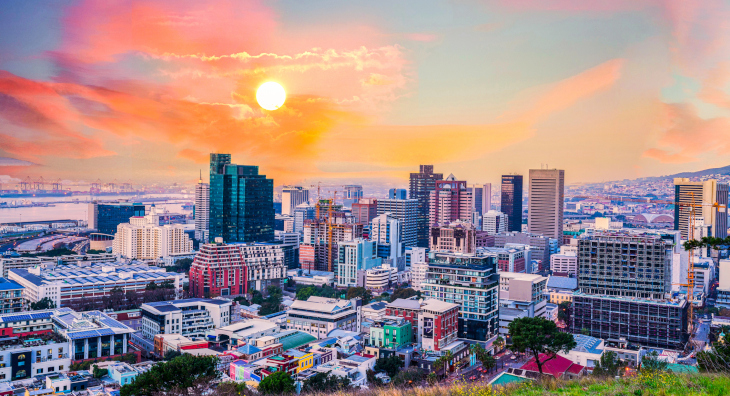South Africa: Deep recession unfolding in the African country most affected by covid-19

Event
South Africa has by far the most covid-19 cases in Africa and reported almost 373,000 positive cases and 5,173 deaths (per 22 July). According to the WHO numbers, South Africa is the fifth most affected country in the world in terms of case totals. Epidemiologists suggest South Africa will reach its peak between late July and the end of September, depending on the province.
Impact
After a decade of weak economic performance, South Africa’s GDP is expected to contract by 7.1% by the end of the year. According to the World Bank’s June 2020 projections, the economy is expected to recover in 2021 as GDP growth would reach 2.9%. However, given the great uncertainty around the magnitude and duration of the covid-19 outbreak in Africa, these projections might be revised over the coming months. The gradual easing of lockdown measures might give an economic boost, but depressed investor confidence and supply chain interruptions are likely to linger beyond 2020. In general, South Africa’s economic outlook is turned to the downside.
When covid-19 hit and a lockdown was put in place, South Africa was still struggling with the impact of a haunting electricity crisis, weak agricultural production (severe droughts) and failing state-owned enterprises burdening the public finances (especially the restructuring of Eskom). The country was very much exposed to the ‘global lockdown’ and disruptions in global supply chains as it is highly internationally oriented. Moreover, the domestic lockdown measures sharply depressed consumer spending, which accounted for about 60% of GDP in 2019. The rand has experienced additional pressure since the covid-19 outbreak and lost about 20% against the USD since last year. The global trade disruptions (also affecting the important service sector) together with the sudden stop in tourism and the drop in commodity prices, shook the country’s export revenues. However, as imports are set to contract even more due to the collapse in consumer spending and international oil prices (South Africa is a net fuel importer), the current account balance might actually end up in a small surplus in 2020. Still, South Africa will be particularly affected by the sharp drop in global capital flows towards emerging markets given its high reliance on portfolio investments. As a result of lower foreign exchange inflows, both South Africa’s liquidity position and its external debt sustainability have weakened.
Public discontent is mounting over the government’s covid-19 response as especially the poorer provinces prove to be ill-equipped to deal with the crisis. The social climate is expected to become even more tense as the already outsized unemployment (30% of the active population) and inequality rates are set to rise further. Consequently, the epidemic will raise pressure on President Cyril Ramaphosa’s government and will test South Africa’s healthcare and social protection capacity. The South African Treasury expects the government’s fiscal support package to raise the 2020 fiscal deficit to a staggering 15.7% of GDP, adding to the public debt stock projections. If over time, the government fails to secure economic and fiscal reforms, sovereign debt might become unsustainable by 2024. Given the country’s very deep and liquid financial markets, it should be able to have access to sufficient financing to cover the large immediate needs created by the extraordinary fiscal support, yet costs might be high. Therefore, financing needs will be at least partly met by the issuance of concessional debt from international financial institutions like the World Bank, the African Development Bank, and the New Development Bank. Moreover, South Africa made its first-ever request for IMF support, which would take the form of a USD 4.2 billion Rapid Financing Instrument (RFI). The IMF board still needs to reach a final decision on the request.
Analyst: Louise Van Cauwenbergh – l.vancauwenbergh@credendo.com